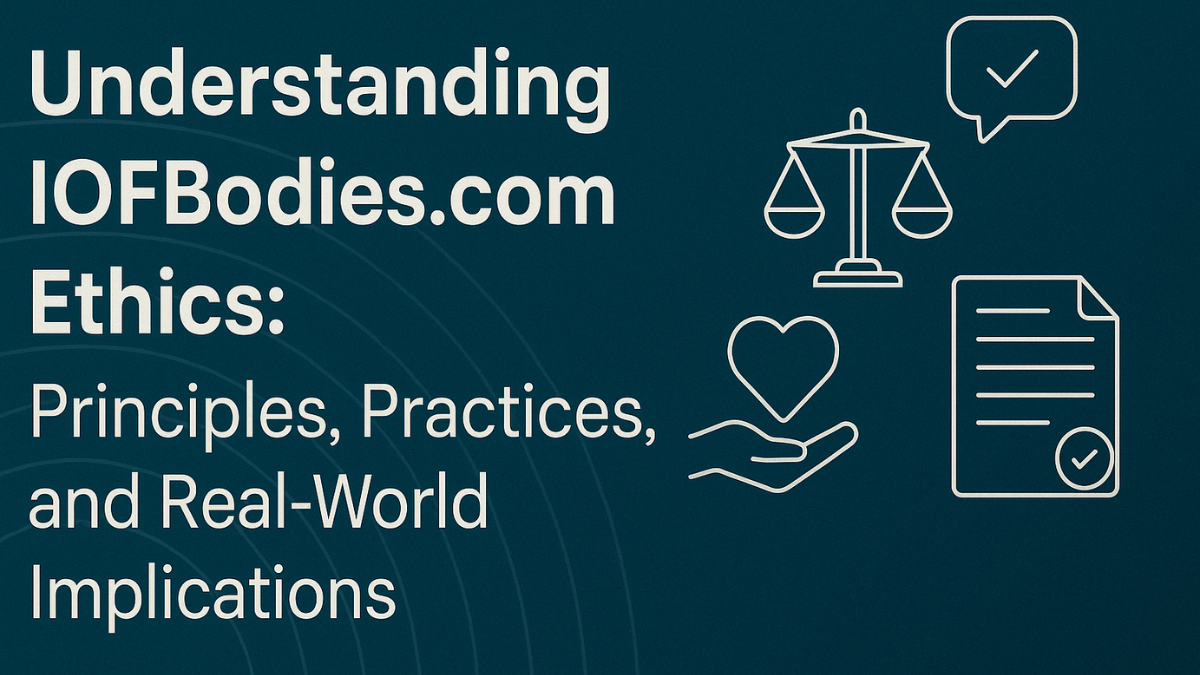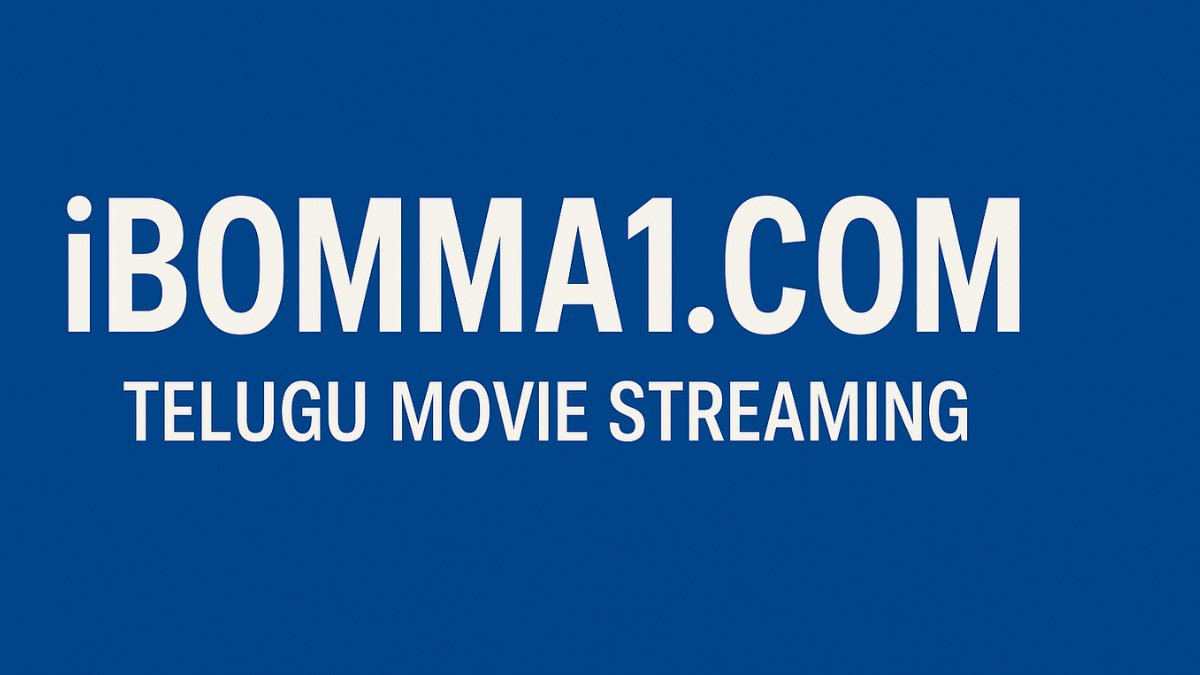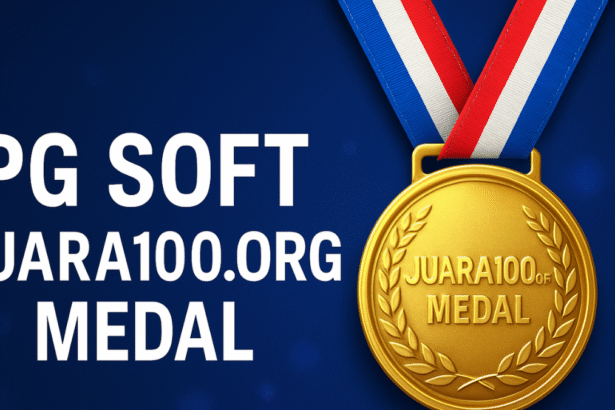In today’s digital era, ethical standards shape the internet experience more than ever. As online platforms expand, so does the scrutiny of their operational frameworks and ethical foundations. Among such platforms, IOFBodies.com ethics has become a widely discussed subject, drawing attention from users, professionals, and digital rights advocates.
also read: https://usaenliinea.com/thehrwp/
This article offers a detailed, clear, and comprehensive overview of the ethical dimensions of IOFBodies.com—how they operate, why they matter, and their impact on digital culture and user responsibility.
What is IOFBodies.com?
IOFBodies.com is a digital platform that presents detailed, sometimes sensitive, content—often under a research, forensic, or educational umbrella. The site offers deep dives into human anatomy, forensic case studies, and sometimes graphical content intended for professional use or study. Because of this nature, the ethical standards that govern IOFBodies.com are crucial for its credibility and public trust.
Why Are Ethics Important for a Platform Like IOFBodies.com?
Any platform dealing with human subject matter—especially those touching upon deceased individuals, body autonomy, and forensic documentation—must operate under strict ethical guidelines. The ethics behind IOFBodies.com protect the dignity of individuals, ensure respectful representation, and build accountability with their audience.
Core Principles Behind IOFBodies.com Ethics
The IOFBodies.com ethics model rests on a few key foundational principles that ensure responsible content publishing. Let’s explore these guiding pillars:
1. Consent and Source Verification
Before any content involving human remains or forensic documentation is published, it’s essential to verify the legitimacy of sources and ensure that proper consents or public domain rights are secured. IOFBodies.com claims adherence to these rules, working only with material that is legally and ethically obtained.
2. Educational Intent
Another major aspect of their ethical framework is purpose-driven publishing. The content on IOFBodies.com is positioned as an educational resource for students, researchers, and professionals in medicine or forensic science. This approach distinguishes the site from exploitative or sensationalist platforms.
3. Anonymity and Privacy
Whenever possible, identifying information is removed from case studies or images to maintain the privacy and dignity of individuals, even post-mortem. Ethics at IOFBodies.com require that names, dates, and personal details are either anonymized or generalized.
4. Clear User Guidelines
The site offers disclaimers and guidelines to users, warning of graphic content and requiring age verification in some cases. This demonstrates a degree of ethical transparency and attempts to protect vulnerable audiences.
Real-World Applications of IOFBodies.com Ethics
Let’s consider how these ethical standards translate into real-world applications:
| Ethical Element | Real-World Application |
|---|---|
| Consent Verification | Ensuring material used has legal and informed permission |
| Educational Focus | Providing anatomy tools for students or forensic experts |
| Privacy Measures | Redacting personal data in case documents and visuals |
| Age-Based Access | Preventing minors from viewing disturbing imagery |
| Disclaimers and Notices | Offering opt-in warnings to avoid user distress |
These practices aren’t just theoretical; they help balance the value of the platform with public expectations and digital responsibility.
Controversies and Criticisms
Despite their ethical framework, IOFBodies.com has faced criticism. Some viewers argue that even anonymized content can cross moral boundaries, especially if the deceased or their families haven’t explicitly consented.
Others suggest that the educational intent can sometimes blur lines with morbid curiosity, especially when content is shared on social platforms without context. These are valid ethical debates, and platforms like IOFBodies.com must constantly adapt their policies to reflect evolving norms.
How IOFBodies.com Ethics Align with Digital Law
It’s important to distinguish between ethical responsibility and legal compliance. While ethics are often moral or social guidelines, legal compliance refers to the law of the land.
IOFBodies.com must adhere to both:
- Copyright Laws: Ensuring all content shared is either licensed or in the public domain.
- GDPR and Data Protection: Especially for content originating from the EU, compliance with data protection laws is necessary.
- Medical Ethics: When content overlaps with medical or forensic education, professional ethical standards from institutions like WHO or AMA are considered.
Comparison of Ethical Practices: IOFBodies.com vs. Similar Platforms
To understand where IOFBodies.com stands, here’s a comparative table of ethical practices among similar digital platforms:
| Platform | Ethical Strengths | Weaknesses |
|---|---|---|
| IOFBodies.com | Consent, privacy, age warnings, educational focus | Public debate on the morality of content nature |
| ForensicFiles.com | Strong anonymization, academic alignment | Lacks public-facing disclaimers in some sections |
| AutopsyWorld.org | Rare source citations | Often lacks transparent ethical disclosures |
| AnatomyReference.net | Peer-reviewed content | Not always updated with latest ethical standards |
How IOFBodies.com Ethics Influence User Experience
The ethical choices made by IOFBodies.com affect how users interact with the platform in several ways:
- Trust and Credibility: When users see clear disclaimers and ethical disclosures, they’re more likely to trust the content.
- Emotional Preparedness: Trigger warnings help users prepare for what they’re about to view, reducing psychological harm.
- Educational Value: Knowing that the content is ethically sourced and contextually explained adds academic weight to the platform.
These facets contribute to a safer, more informed digital environment, which is the core purpose of maintaining strong IOFBodies.com ethics.
Best Practices for Ethical Engagement on Platforms Like IOFBodies.com
Whether you’re a student, researcher, or just curious, here’s how to engage ethically:
- Understand the context: Don’t share screenshots or snippets without explaining the educational intent.
- Avoid sensationalism: Respect the nature of the content and avoid using it for shock value.
- Use the content for learning: Apply the information in academic or clinical environments responsibly.
- Report issues: If something feels off or inappropriate, contact the site administrators.
- Follow age guidelines: If you’re under 18, avoid visiting or sharing content from such platforms.
FAQs About IOFBodies.com Ethics
Q1. Is IOFBodies.com content peer-reviewed?
No, but the site often cites sources or aligns with educational material, though not all content is academically peer-reviewed.
Q2. Can users contribute to the site?
Some user-submitted material is accepted, but it must meet strict ethical and source verification standards.
Q3. Is the site accessible globally?
Yes, but local restrictions may apply based on content nature or country-specific laws.
Q4. Do they collaborate with medical institutions?
They sometimes reference educational institutions but aren’t officially affiliated with any major body.
Q5. Is it legal to share IOFBodies.com content?
Sharing is allowed with credit, but content should not be used out of context or for shock purposes.
Q6. How does the site ensure minors don’t access it?
By including disclaimers and recommending age verification, though enforcement is browser-based.
Q7. Are there professional memberships associated with the site?
No formal memberships, but professionals in forensics and medicine are part of its audience.
Q8. Do they remove content upon request?
Yes, the platform has provisions for removing content if credible concerns are raised.
Q9. How frequently is the content reviewed for ethical compliance?
The review frequency is not public, but ethical policies are periodically updated.
Q10. What should I do if I find content that seems unethical?
You can contact the site directly through their provided channels to report ethical concerns.
Conclusion: A Platform Balancing Knowledge and Responsibility
Understanding IOFBodies.com ethics offers insights into how digital platforms must evolve to match user expectations, legal frameworks, and moral duties. While not without controversy, IOFBodies.com aims to position itself as a responsible, educational space that respects human dignity and academic integrity.
By following best practices and continually refining its ethical policies, IOFBodies.com exemplifies how challenging content can still be shared responsibly. Whether you’re a student, a researcher, or simply curious, knowing the ethics behind the platform allows you to engage with it more meaningfully and thoughtfully.
also read: https://usaenliinea.com/sodziu/
also read: https://usaenliinea.com/tributeprintedpics/
also read: Pikashow V60 APK Download – Stream Smarter, Faster & Free in 2025







